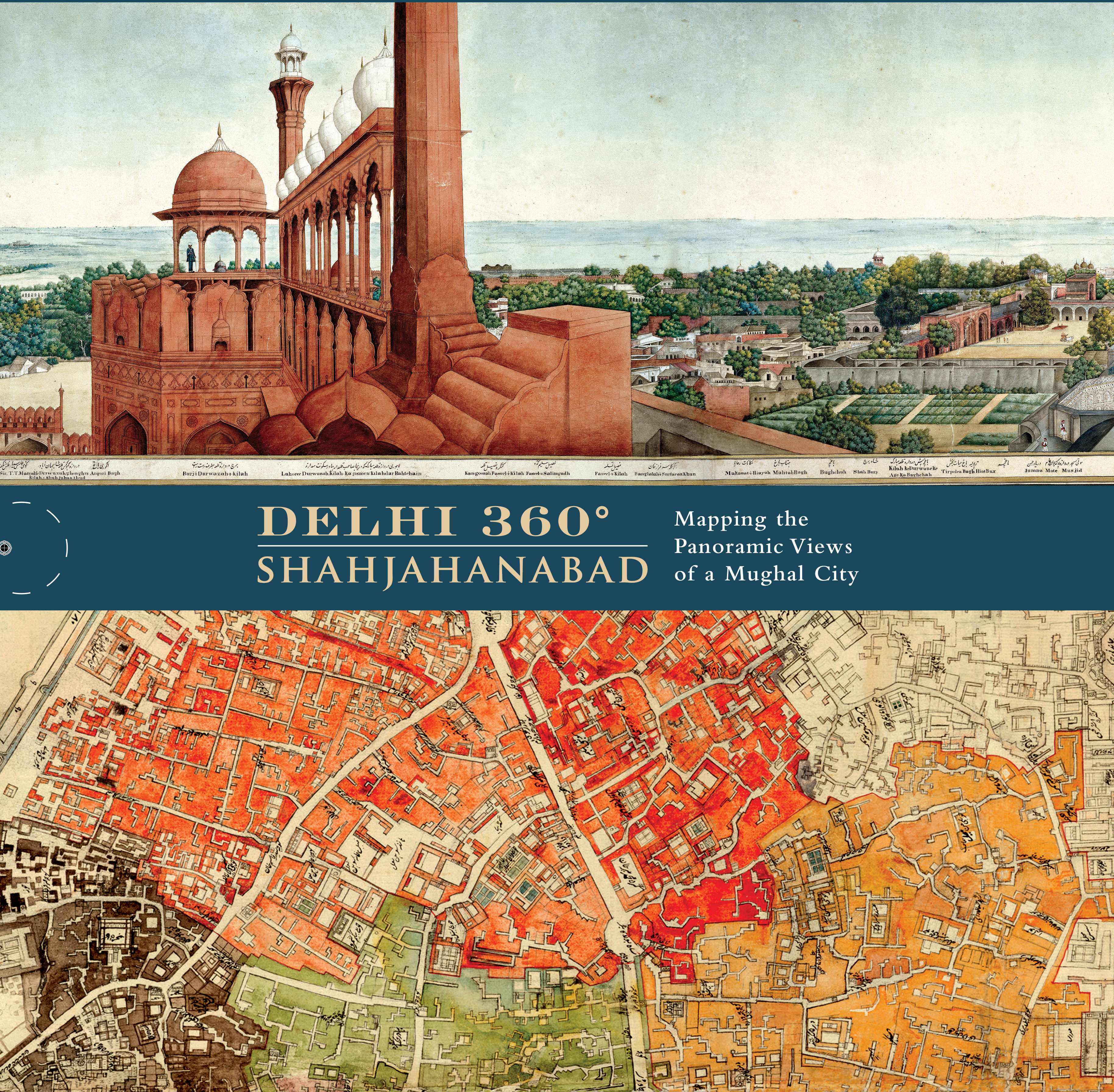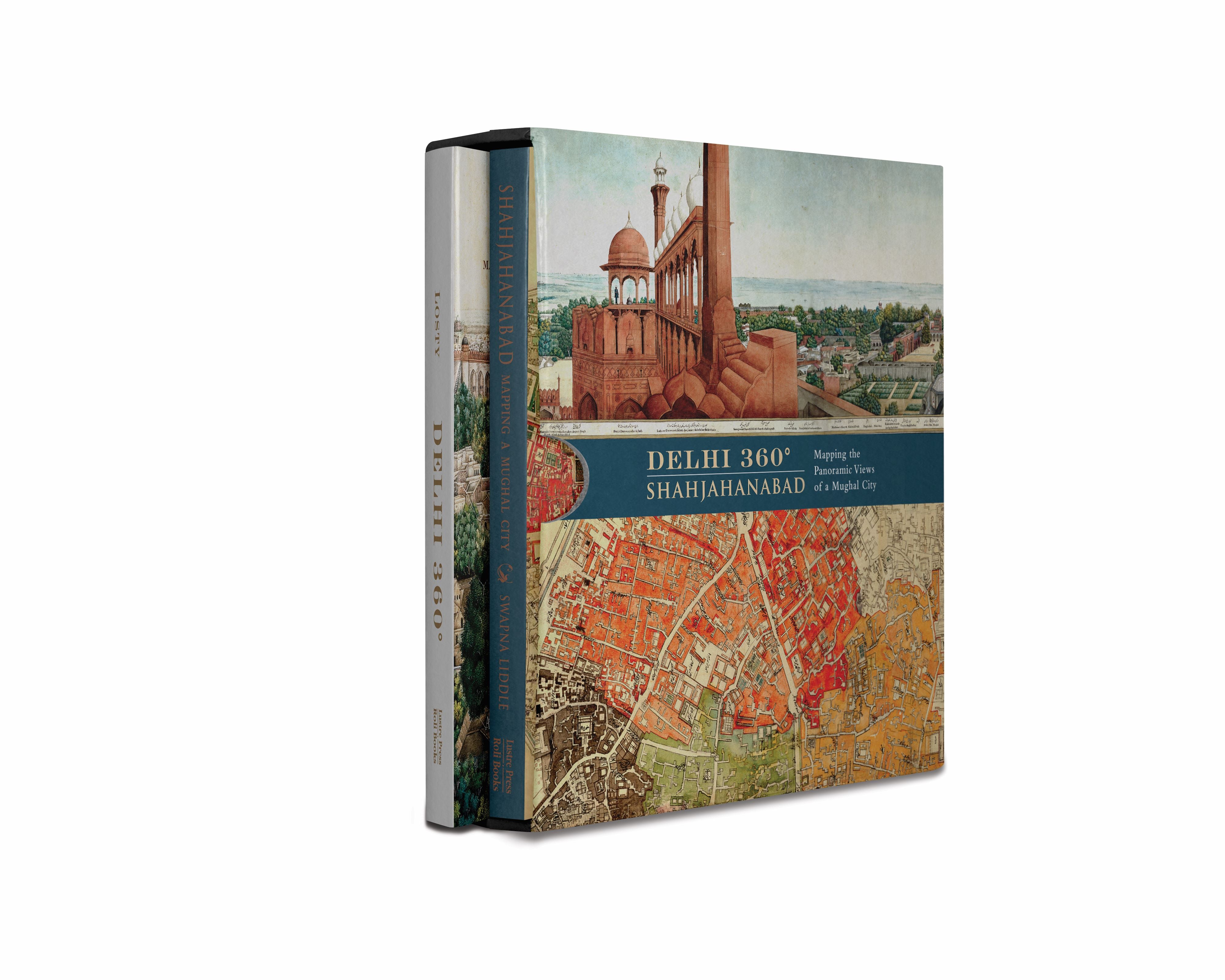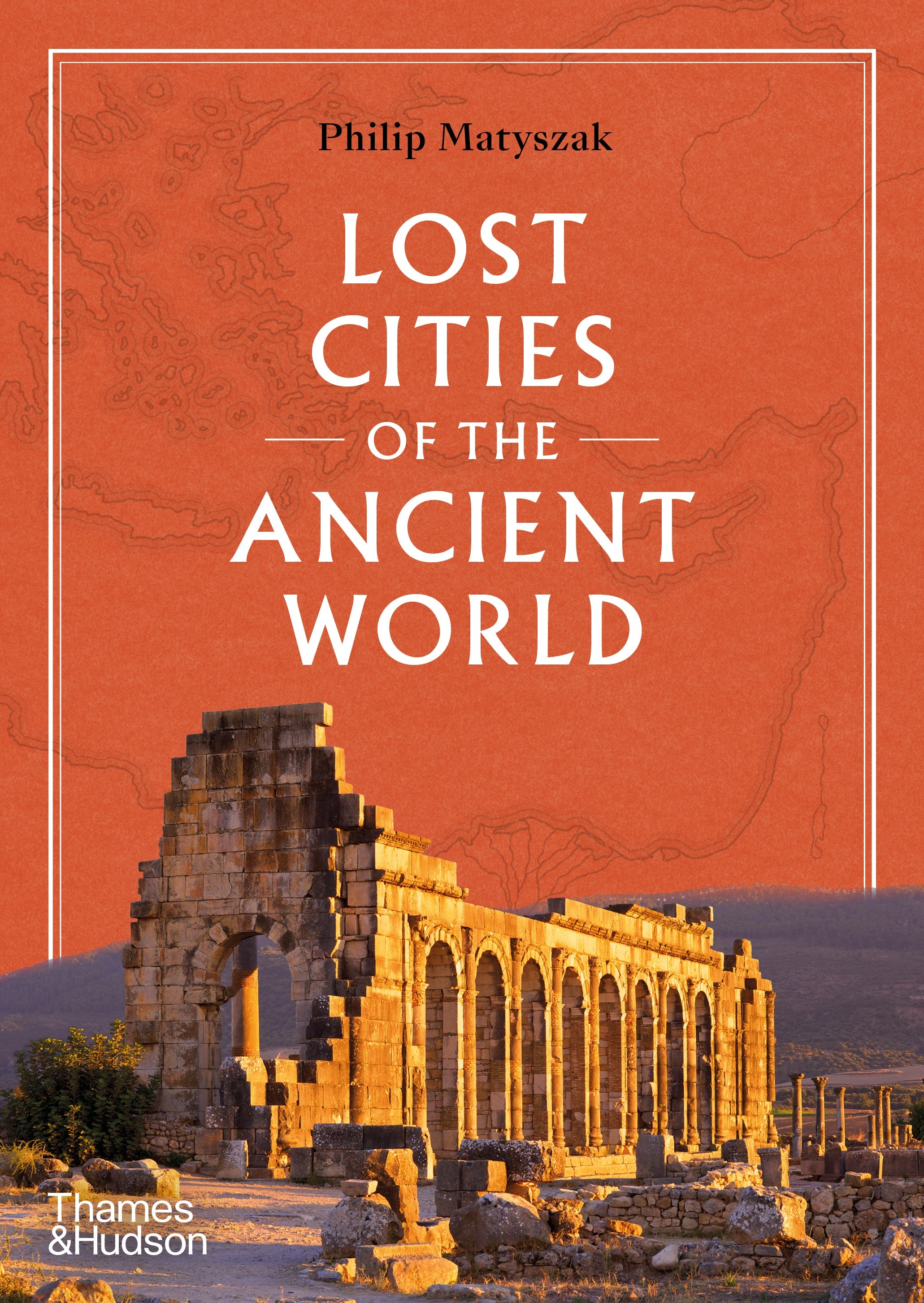Delhi 360° | Shahjahanabad
J P Losty & Swapna Liddle
Made in 1846, the painting commonly known as ‘The Delhi Panorama’ by the famous topographical artist Mazhar Ali Khan is the finest artistic rendering of Shahjahanabad ever made. It also affords a unique glimpse into the heart of the imperial palace in the Red Fort before much of it was destroyed after the 1857 Uprising. The 360º view of Delhi along with its extraordinary detailing of the cityscape makes the panorama not just an important historical document but also the masterpiece of its artist. The 5-metre long panorama, which is in the collection of the British Library since 1981, along with all the Persian and Urdu inscriptions has never before been published complete. Its publication here is accompanied by essays that put the panorama in its historical and artistic context with a commentary on the inscriptions that brings it to life.
The book will appeal to scholars of Indian history especially Mughal history; anyone with a deep interest in the art, architecture, and history of Mughal India; and all Dilliwallas.
Shahjahanabad : Mapping a Mughal City
Delhi’s Shahjahanabad was first founded as an empire’s capital at the glorious height of the Mughal dynasty; from this vantage point, it was also witness to the empire’s decline and eventual extinction. The city would transform profoundly in the aftermath of the Revolt of 1857, with many of its neighbourhoods and buildings obliterated, and many of its inhabitants, including the last Mughal emperor, Bahadur Shah Zafar, having left, never to return. Fortunately, a mapmaker, working in 1846, painstakingly depicted important buildings, streets, and landmarks, providing a wealth of information about the city as it had evolved up to that time.
Shahjahanabad reproduces this large-scale, beautifully drawn and coloured map, and considers the city as it had stood prior to its mid-nineteenth-century changes. It also examines the city, neighbourhood by neighbourhood, and explores its diverse communities and important landmarks. With a pull-out map included in the book, this is a must-have for anyone interested in cartography and Delhi’s vibrant cultural history.
JP Losty(1945–2021) was Curator-in-charge of the Extensive Indian Visual Collections in the British Library in London. He worked in the Print, Drawings and Photographs section of the British Library; first as Curator and retiring as Head of the section in 2005. Between 2010 and 2021, he was regularly invited to contribute to a range of exhibition catalogues including The Indian Portrait, Princes and Painters in Mughal Delhi, and Masters of Indian Painting.Jerry published many books and papers on various aspects of the paintings of India from the 12th to the 19th centuries. His major books include The Art of the Book in India(1982), Calcutta City of Palaces(1990), The Ramayana(2008), Sita Ram’s Painted Views of India: Lord Hastings’s Journey from Calcutta to the Punjab, 1814-15(2015), and Court and Courtship: Indian Miniatures in the Tapi Collection(2020). In acknowledgement of his lifetime work on Indian art, Jerry was awarded the Colonel James Tod award in Udaipur in March 2016.
Swapna Liddle works to raise awareness about the architectural and cultural history of Delhi. She is the author of many seminal books on Delhi including her latest, The Broken Script: Delhi Under the East India Company and the Fall of the Mughal Dynasty, 1803–1857.






























